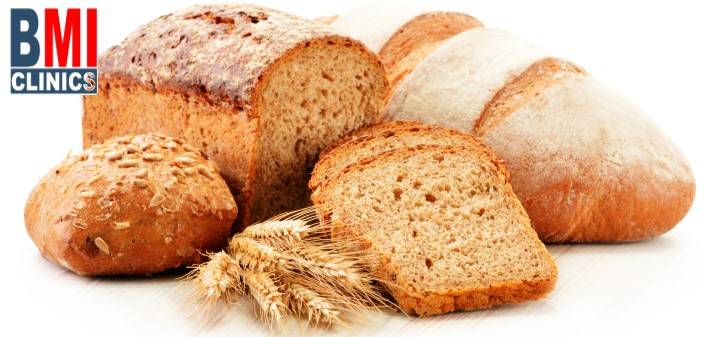Gluten is a protein that is commonly found in some grains such as wheat, rye, and barley. Many Lebanese are sensitive to gluten, and eating foods containing gluten results in damage to their intestine. This condition is called celiac disease or celiac sprue or gluten sensitivity, and is being reported with increasing frequency in Lebanon.
Celiac disease is, therefore, a digestive disorder. It is a type of autoimmune disease in which the body cannot differentiate between diseased and healthy cells and uses the immune system to attack its own healthy cells. With celiac disease, the immune system will damage the lining of the intestine, making it difficult for those people to adequately absorb essential nutrients like calcium, iron, and folate.
Why Does Celiac Disease Occur?
Under normal circumstances, the body is designed to protect itself against foreign cells in the form of diseases and infections. When someone with gluten sensitivity eats foods rich in gluten, their body initiates an immune response against this protein. The antibodies that are formed attack the lining of the intestines, causing them to become inflamed. The small intestine is lined by hair-like extensions called villi, which help to increase the surface area. Once these villi are destroyed, absorption of nutrients is affected, resulting in malnutrition.
What Are The Symptoms Of Gluten Sensitivity?
Celiac disease leads to a variety of digestive symptoms such as bloating, gas, diarrhea, and weight loss. People with celiac sprue also report pale stools. Some people may suffer from a severe skin rash while others may present with anemia from iron deficiency. Muscle cramps and joint and bone pain are also reported symptoms of celiac disease, as are sores in the mouth, seizures, and a tingling sensation due to nerve damage. Children with celiac disease may not grow and develop appropriately and exhibit failure to thrive. Women with celiac disease can have menstrual abnormalities.
What Other Health Conditions Are Associated With Celiac Sprue?
People with celiac sprue may develop osteoporosis due to insufficient absorption of calcium and vitamin D, leading to a higher risk of fractures. Poor absorption of folic acid in a pregnant woman can result in birth defects, as this nutrient is essential for brain and spine development. Children with gluten sensitivity may not grow normally as they are not able to absorb nutrients from their damaged intestines. Celiac disease has also been associated with infertility and miscarriages. It is often noted that people who have celiac sprue also have associated other autoimmune conditions, such as type 1 diabetes, lupus, rheumatoid arthritis, and thyroid disorders.
How Is Celiac Disease Diagnosed?
A physician may suspect celiac disease after a discussion of the patient’s symptoms and digestive history. A blood test may be ordered to measure the level of specific antibodies in the blood. Tests to measure nutritional deficiencies may be performed. Stool sample may be obtained because people with celiac sprue are unable to absorb fat from the food and often have pale-colored stools. A definitive diagnosis of celiac disease can be made by obtaining a biopsy to check for damage to the lining of the intestine. The biopsy is performed by endoscopy, in which a thin tube in inserted from the mouth into the digestive tract.
What Is The Treatment For Celiac Disease?
Avoiding and substituting foods rich in gluten such as wheat, rye, barley, and oats can relieve the symptoms of celiac disease and allow the damaged villi in the intestinal lining to heal. People with celiac disease must follow a gluten-free diet for their entire life. If damage to the intestine is extensive, it may sometimes be necessary to replace essential nutrients with supplements or intravenous injections.
What Is A Gluten-Free Diet?
Avoiding gluten means giving up many staples of modern-day diets such as pasta, flour, cereals, and many other foods that contain grains. People with gluten sensitivity must carefully read food labels and menus to ensure they do not ingest any gluten that can flare up their symptoms. Substitutes of flour and grain such as soy, potato, rice and corn, as well some specially made bread can be eaten by people with celiac disease. It is possible to eat a well-balanced diet consisting of fruits, vegetables, meat and fish that does not contain any gluten and provides adequate nutrition to stay healthy.
What about wheat allergy
Wheat allergies is related to gluten sensitivity, and is being reported with increasing frequency in Lebanon. More and more people are finding relief from their problems by switching to a wheat-free (and sometimes gluten-free) diet.
The symptoms of wheat allergy can manifest differently in different people. Gastrointestinal symptoms are common, such as stomach upsets, cramps, diarrhea, gas and bloating. Wheat allergies can also produce hives and skin rashes in sensitive individuals.
If you believe that your symptoms may be due to a wheat allergy, try cutting wheat out of your diet for a time and see if there’s any improvement. A suspected wheat allergy can be confirmed through allergy testing. This involves both an elimination diet (giving up wheat products) along with other tests such as blood and skin prick tests.









